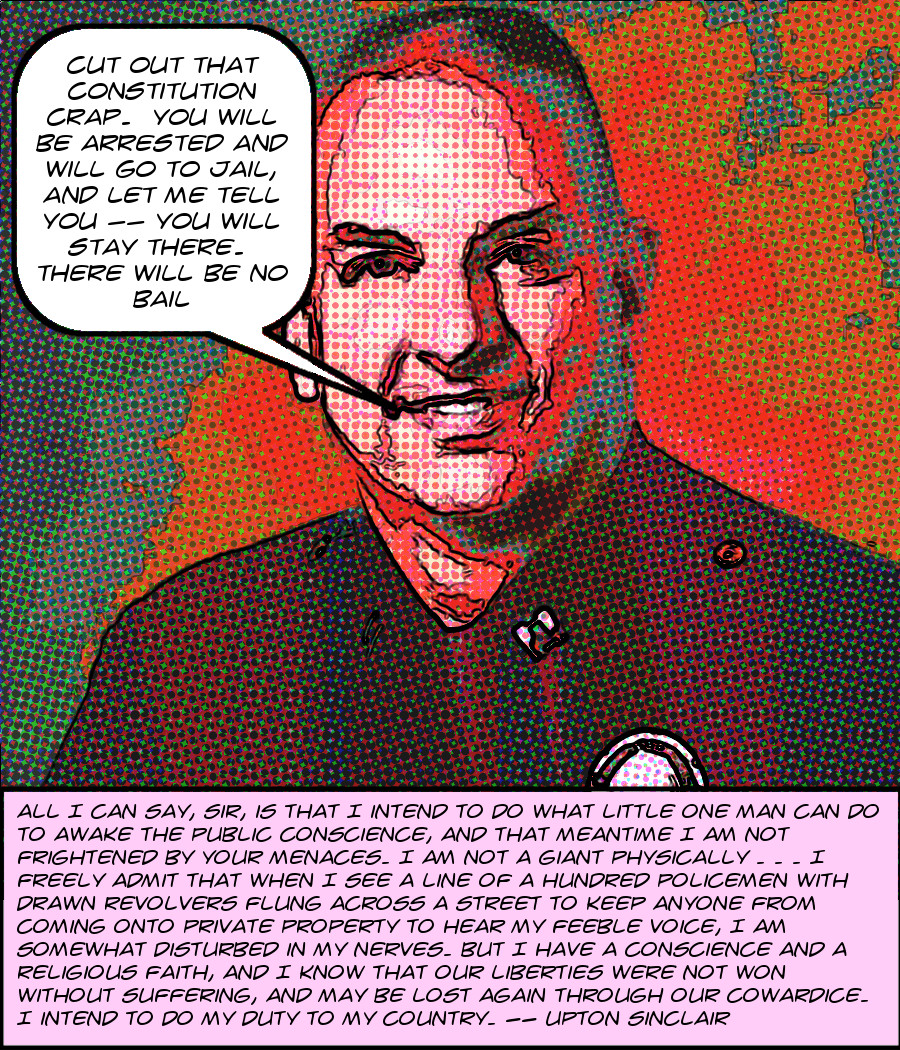 Maybe you remember that last October I complained to LAPD Internal Affairs about the fact that the LAPD Discovery Unit, which handles Public Records Act requests, was unbelievably, flamboyantly, egregiously, astonishingly remiss in their legal duty to provide requested records promptly. They routinely take more than 18 months to handle requests if they handle them at all.
Maybe you remember that last October I complained to LAPD Internal Affairs about the fact that the LAPD Discovery Unit, which handles Public Records Act requests, was unbelievably, flamboyantly, egregiously, astonishingly remiss in their legal duty to provide requested records promptly. They routinely take more than 18 months to handle requests if they handle them at all.
The complaint was based on the theory that, since compliance with the Public Records Act is a fundamental constitutional right in California, and since Reverence for the Law is one of the LAPD’s core values, someone in the chain of command ought to be held responsible for LAPD’s flouting of this fundamental constitutional right. Well, a few weeks ago I received a determination letter from Internal Affairs on my complaint. They found sadly, that there was Insufficient Evidence to Adjudicate. So much for that theory!
Of course, the LAPD has a long and ultimately twisted relationship with both the Constitution of the United States and with the Constitution of California, from the depths of unrecorded history to 1923’s Liberty Hill Strike to the Consent Decree imposed by the Justice Department in response to innumerable instances of appalling misconduct to the long list of killings of unarmed people in the first decades of the 21st Century.
The Liberty Hill Strike, in 1923 in San Pedro, is particularly interesting. The Wiki Page gives a pretty good outline of how the Industrial Workers of the World fought to be able to unionize the Port of LA and were opposed at every turn by the LAPD, fighting as they always did in the service of the usual gangs of shadowy zillionaires.1 As always with the IWW, free speech was a huge issue. In this particular case the struggle involved novelist Upton Sinclair being arrested by the LAPD for reading the First Amendment out loud, inspiring running-dog fascist lackey and LAPD Chief of Police Louis D. Oaks to utter some version of the memorable words which I’ve placed above in the mouth of David Grimes, the present-day commanding officer of LAPD’s Internal Affairs Unit.2
This episode is especially relevant because it led directly to the creation of the Southern California branch of the ACLU, which counted Sinclair among its founders. And thus it is heartening and historically consistent to find the ACLU filing a lawsuit against the LAPD alleging that it habitually ignores the requirements of the CPRA. The Times story linked to there enumerates an astounding list of ignored requests. Perhaps, if the LAPD won’t clean up its own dirty laundry, a court will direct them in a constitutionally compliant cleaning process. As we’ve seen, it won’t be the first time.
Image of Captain David Grimes, Commanding Officer of LAPD’s Internal Affairs Group started out as a public record, which I obtained from Grimes’s Twitter feed. After much artistical manipulation it is now, it seems, ©2017 MichaelKohlhaas.org.
- Forerunners of today’s business improvement districts, of course.
- The best version of this famous story that I was able to locate can be found in: Zanger, Martin. “Politics of Confrontation: Upton Sinclair and the Launching of the ACLU in Southern California.” Pacific Historical Review, vol. 38, no. 4, 1969, pp. 383–406. The quote from Upton Sinclair on this incident I took from the Southern California chapter of the ACLU’s history of its founding.
